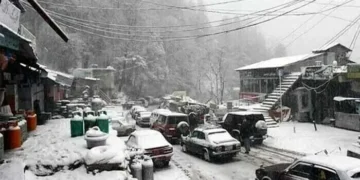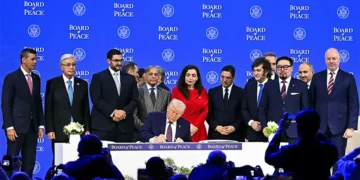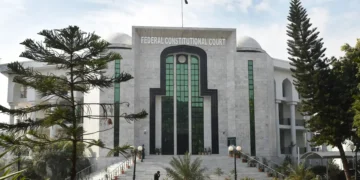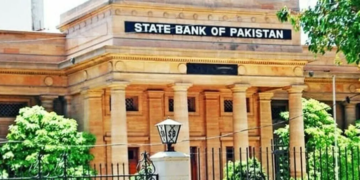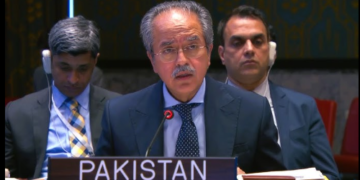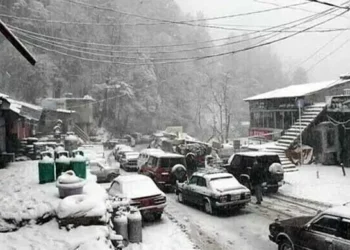ISLAMABAD (MNN); Minister for Climate Change Dr Musadik Malik has warned that glaciers in the Himalayas-Karakoram-Hindu Kush (HKH) region are melting at an unprecedented rate, calling for accelerated global efforts to protect vulnerable mountain systems.
Speaking via video message at a COP30 side event titled Cryosphere Adaptation and Disaster Risk Reduction, he stressed that the rapid melt posed serious risks to millions across South Asia.
Pakistan hosts nearly 13,000 glaciers, most of which feed the Indus River system. Citing a 2023 assessment by the International Centre for Integrated Mountain Development (ICIMOD), the minister noted that Himalayan glaciers supplying critical water to almost two billion people are disappearing faster than ever due to climate change, heightening the threat of unpredictable and costly disasters.
He added that climate-induced melting has already triggered severe losses, including Glacial Lake Outburst Floods (GLOFs), which can cause widespread downstream damage.
The session, organised by Pakistan’s Ministry of Climate Change and ICIMOD, included participation from Türkiye, Azerbaijan, Nepal, Bhutan, UNESCO, UNDP, and the Asian Development Bank. Dr Malik described the HKH cryosphere as the “white rooftops of the world” and a primary life source for millions, urging the global community to elevate cryosphere protection at COP30.
He further emphasised the justice dimension of climate impacts, pointing out that ten countries contribute 70 percent of global carbon emissions but also receive 85 percent of green financing. He called on nations with historic emissions responsibility to provide their fair share of climate adaptation support to vulnerable regions.
In a separate keynote delivered at the High-Level Climate Finance Dialogue on the sidelines of COP30 in Belém, Brazil, Dr Malik highlighted Pakistan’s high exposure to climate risks despite contributing less than one percent of global greenhouse gas emissions. He said the country’s 13,000 glaciers form the core of its ecological and economic stability but remain under severe threat.
He underlined Pakistan’s commitment to green transition goals, including achieving 60 percent renewable energy by 2030 and implementing initiatives such as the Living Indus Initiative and Recharge Pakistan. However, he cautioned that national efforts alone are insufficient without predictable, accessible international climate financing.
Calling for the operationalisation of the Loss and Damage Fund, the minister urged global financial institutions to ease access to climate technologies and support capacity-building in the Global South. He also criticised the repurposing of climate finance from essential development sectors such as education and health, which he said leaves vulnerable nations struggling with competing priorities.
The dialogue concluded with a renewed call for strengthened international cooperation, transparent financing mechanisms, and increased support for climate-vulnerable countries to help achieve global climate goals.

